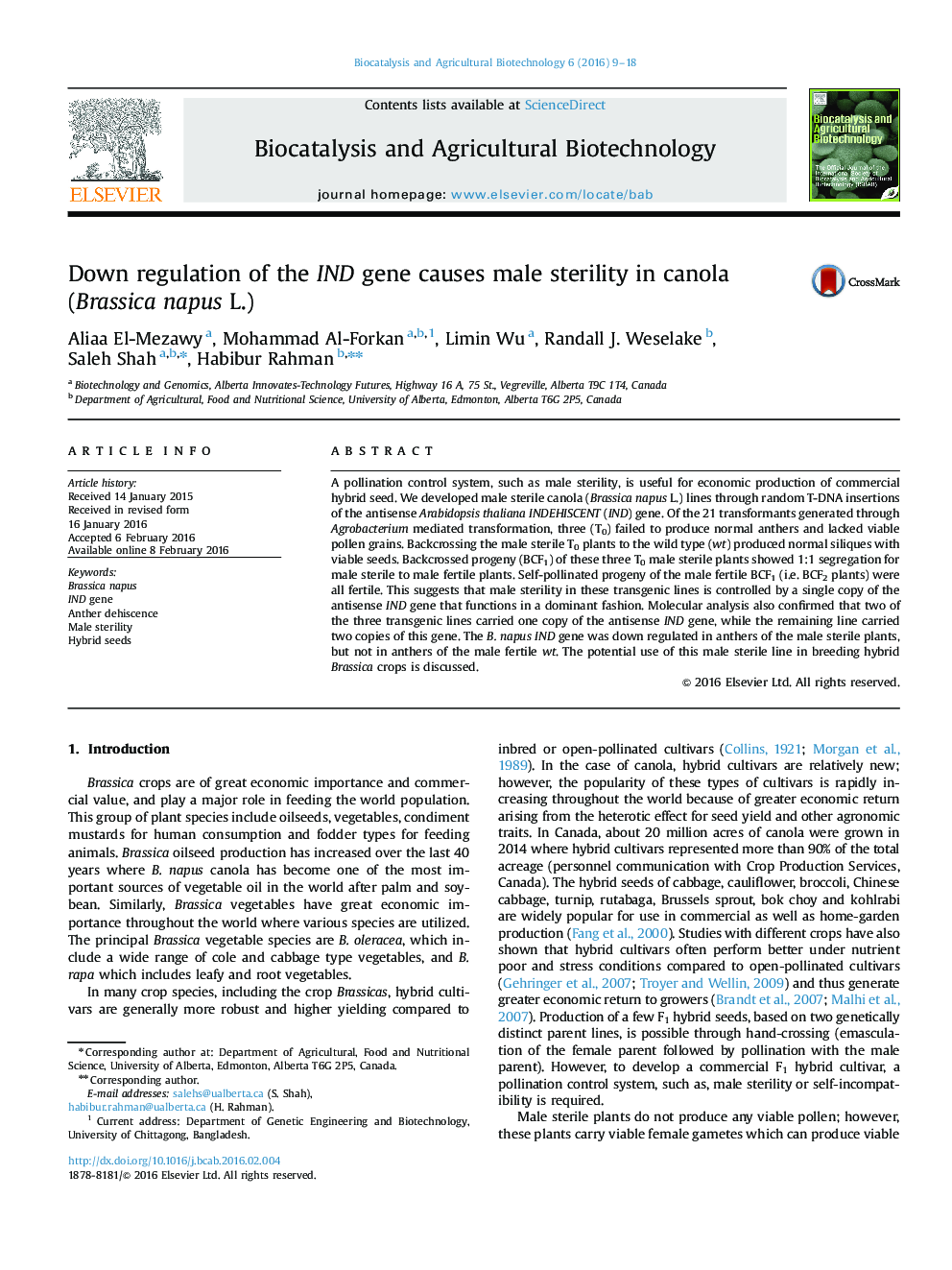| Article ID | Journal | Published Year | Pages | File Type |
|---|---|---|---|---|
| 2075378 | Biocatalysis and Agricultural Biotechnology | 2016 | 10 Pages |
Abstract
A pollination control system, such as male sterility, is useful for economic production of commercial hybrid seed. We developed male sterile canola (Brassica napus L.) lines through random T-DNA insertions of the antisense Arabidopsis thaliana INDEHISCENT (IND) gene. Of the 21 transformants generated through Agrobacterium mediated transformation, three (T0) failed to produce normal anthers and lacked viable pollen grains. Backcrossing the male sterile T0 plants to the wild type (wt) produced normal siliques with viable seeds. Backcrossed progeny (BCF1) of these three T0 male sterile plants showed 1:1 segregation for male sterile to male fertile plants. Self-pollinated progeny of the male fertile BCF1 (i.e. BCF2 plants) were all fertile. This suggests that male sterility in these transgenic lines is controlled by a single copy of the antisense IND gene that functions in a dominant fashion. Molecular analysis also confirmed that two of the three transgenic lines carried one copy of the antisense IND gene, while the remaining line carried two copies of this gene. The B. napus IND gene was down regulated in anthers of the male sterile plants, but not in anthers of the male fertile wt. The potential use of this male sterile line in breeding hybrid Brassica crops is discussed.
Related Topics
Life Sciences
Agricultural and Biological Sciences
Agricultural and Biological Sciences (General)
Authors
Aliaa El-Mezawy, Mohammad Al-Forkan, Limin Wu, Randall J. Weselake, Saleh Shah, Habibur Rahman,
